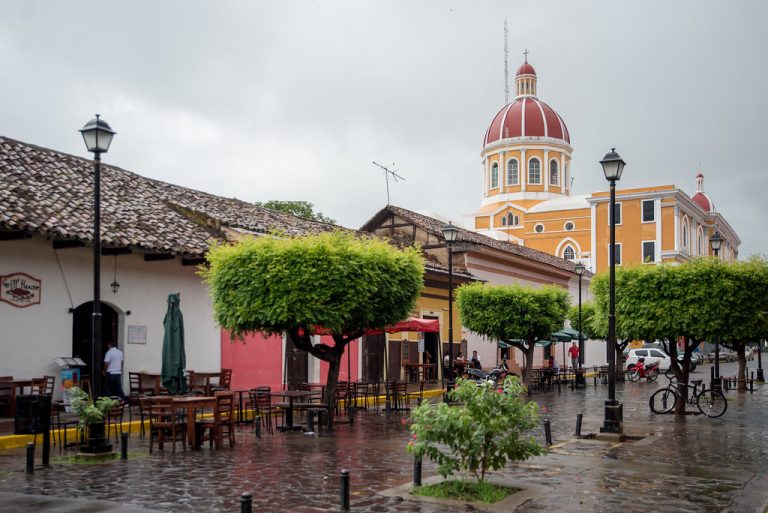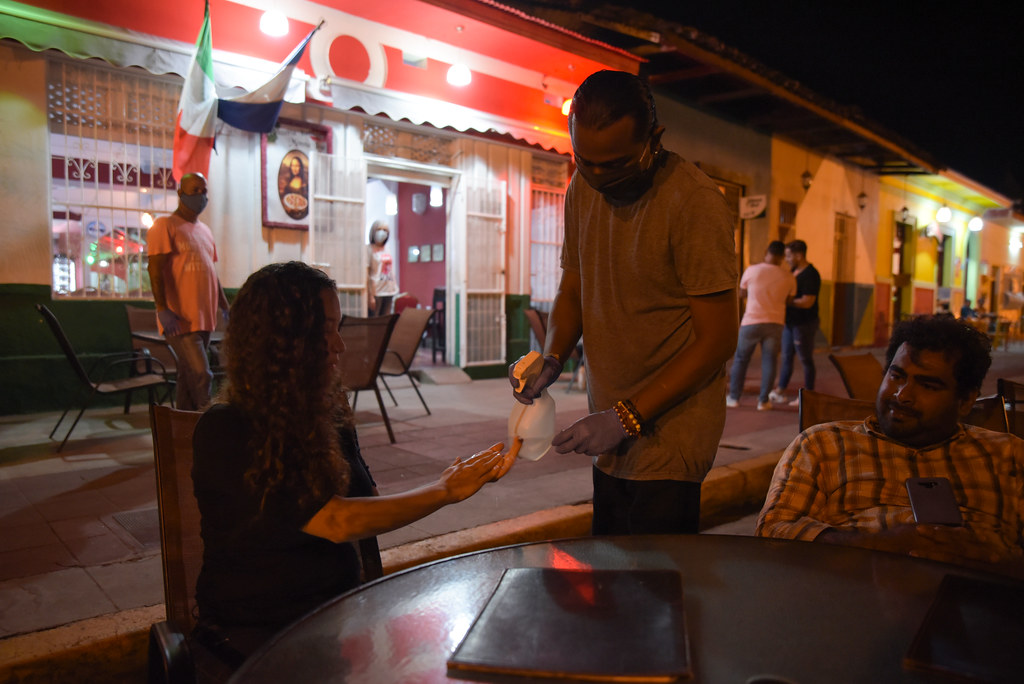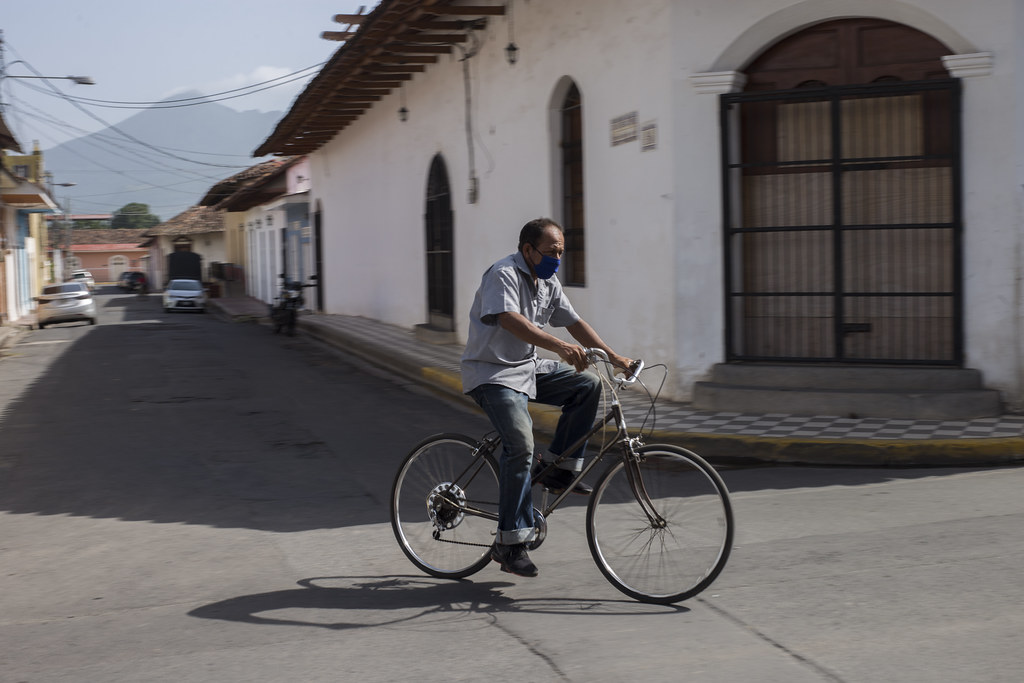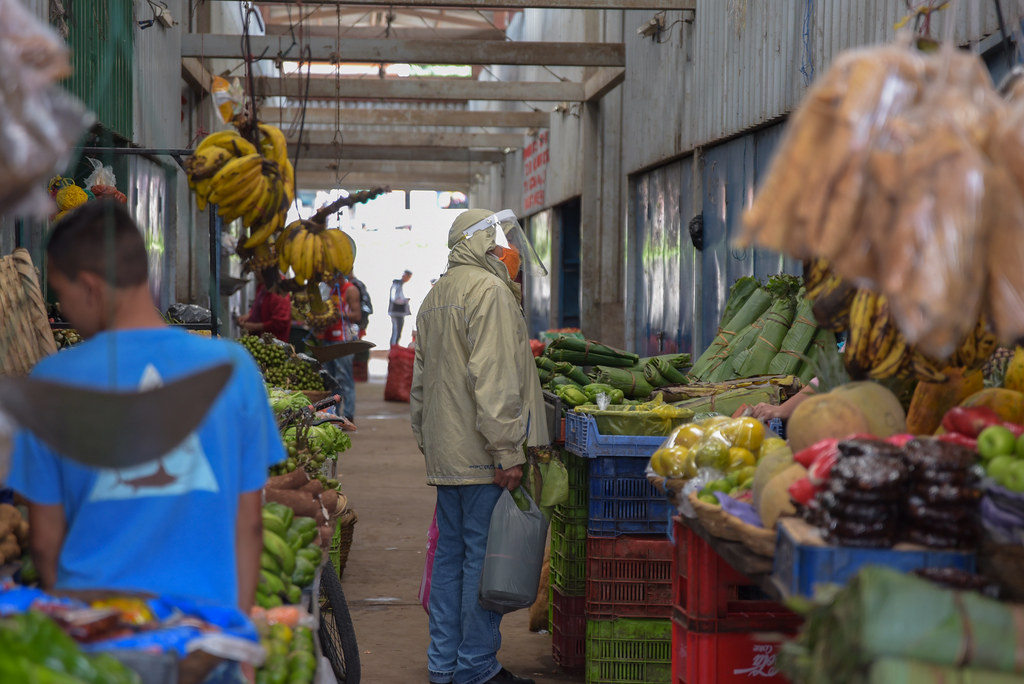31 de agosto 2020

The Return of the Military

PUBLICIDAD 1M
PUBLICIDAD 4D
PUBLICIDAD 5D
Small businesses have ran out of capital and have laid off some of their workers. Now, they are trying to survive with less demand

An iconic image of the pedestrian area of the city of Granada. Photo: Carlos Herrera | Confidencial
Emilio closed his business for almost one hundred days, a period he remembers as eternal. He is the owner of a gym, and “for the safety of clients and staff”, he decided to close temporarily. But Emilio never thought that the closure would drag on for so long. “I was on the verge of selling everything, and shutting down permanently”, he recalls while talking about reopening a business in Nicaragua, in times of Covid-19.
The gym, which served more than two hundred clients per day, had three trainers, a bar manager, and a cashier. He also hired a lady who cleaned the place twice a day. “They ended up being practically unemployed”, he says.
His gym closed on March 19, a day after the government of Daniel Ortega and Rosario Murillo announced the first positive case of Covid-19. “The fear of closing already existed, but with this announcement, most businesses closed, and on social media, many people told us that it was good of us to stay closed for safety reasons”, he adds.
Emilio had to live off of his savings, while his wife continued to work in a store, a strategy that allowed them to support themselves and their two children. “With a lot of sacrifices, we were able to eat and pay the rent of the house that we live in. We did not have much left. I was able to pay the rent for the gym for two months but had to ask the owner for an extension. He was quite understanding,” he says.
It was frustrating for Emilio to see the days go by without a routine, but especially without an income. “Many gyms have had to rent or sell their machines in order to survive. Others have closed”, he expresses.
The gym reopened a few weeks ago applying all of the possible safety measures. “More cleaning, hand sanitizing gel, taking temperatures, limited opening times, avoiding agglomerations, and reducing the number of people that can come in at one time”, he explains.
However, the number of clients who returned to the gym was minimal and continues to be that way. “People are still afraid and the gym is one of the places where people are most afraid to get infected with Coronavirus,” he claims. Although the income is smaller, it is enough to pay for the salary of his workers and the rent.

Nicaraguan businesses have slowly reopened, implementing security measures for their staff and their clients. Photo: Confidencial
The survey entitled “Assessing the needs of businesses as a result of Covid-19”, organized by the Superior Council of Private Enterprise (Cosep), revealed that 64% of businesses declared that the cash flow to maintain staff and business operations was insufficient and that 10% of business owners were considering closing temporarily or permanently.
The survey was conducted in June among 206 businesses of different economic sectors, in 15 of 17 departments and the two autonomous regions of Nicaragua, and it also revealed that 7% of the companies “have stopped operating due to Covid-19”.
47% of the businesses surveyed reported a high financial impact of Covid-19 on revenue and sales, and 31% reported a medium impact. As a result of the pandemic, approximately 33% of companies have had to lay off workers amid the health crisis.
The study classified the fall in demand as a “key problem” for 79% of companies, and that 27% of these reported a high percentage of absenteeism among workers due to illness.
Ana Moreno, the owner of a clothing and accessories store in Rivas, experienced a fall in demand leading to low cash flow. “I realized that people started going out less, and when they did their shopping they prioritized the purchase of basic food products, and very few people were looking for clothing, make-up or shoes”, she told me.
Because of it, she decided to fire her two employees and take care of her small business on her own. Two of her three daughters, who stopped going to school or college, started to help her in the store.
“Since the pandemic worsened in Nicaragua, I had to turn a small business that generated at least two jobs, into a family one, so that it continued to exist,” she explains.
What Moreno feels most bad about is having to fire her two employees. “Both of them had to set up small businesses by selling food, but I would like to hire staff again because my daughters will go back to their routine at some point”, she claims.
She acknowledges that the situation “has improved a little”, but until recently, her income was not enough to support herself and she barely had enough to pay rent and purchase food. “This virus has come to destroy everything, and in my case, my business is only five years old, three of those years dealing with a political crisis and now a health crisis which has made me stumble”, she complains.

A man bikes around the center of Granada city, wearing a face mask. Photo: Confidencial
A study conducted by the Nicaraguan Foundation for Economic and Social Development (Funides), published in late May, estimates that the health crisis generated by Coronavirus will leave between 59,300 and 123,400 people unemployed.
The research center calculates that the unemployment rate will increase from 6.6% in 2019 to a rate between 7.3% to 9.2% in 2020. This means that by the end of the year between 272,600 and 336,700 people will be unemployed.
Funides’ August Situation Report reveals that the general poverty rate will increase from 28.2% in 2019 to a range of between 32.2% and 36.9% in 2020 due to the impact of the coronavirus pandemic.
“This would imply that between 2.1 to 2.4 million people would live on 1.76 dollars or less a day”, the NGO warned in a chapter called “Impacts of Covid-19 on unemployment, poverty, and inequality in Nicaragua”.
Meanwhile, the Economic Commission for Latin America (ECLAC) foresees an economic recession that will worsen in Latin America due to Covid-19, for which they estimate a regional collapse of Gross Domestic Product (GDP) of -9.1%, which in the specific case of Nicaragua will be -8.3%

A man does his groceries in the city of Jinotega while wearing a face shield and face mask. Photo: Confidencial
In late February, reservations decreased at a hotel located in the colonial city of Granada. During that time, the Covid-19 pandemic was extending and the cancelations came from France, Spain, Italy, but also Canada, Costa Rica, and the United States.
“When the first case was announced in Nicaragua, there were already fewer tourists. The majority of them were people who were already in the country and were seeking refuge in a hotel to pass the possible quarantine,” explains the owner of the business, who prefers not to reveal his name.
However, the Nicaraguan government never declared a lockdown, a national quarantine, or any preventive measures. Instead, the Ortega-Murillo regime organized marches, parties, fairs, and massive sports events. “That ended up driving tourists away because they knew that coming to Nicaragua increased the chances of getting infected with Covid-19”, he explains.
For several weeks, the owner of the hotel operated on a minimal amount of tourists. Only three or four hotel rooms, out of the twelve that he has available for guests, were taken. “Some nights, there was only one person in the entire hotel”, he recalls.
Because of this, he had to send his staff on vacation. In total, he has eight employees. Later on, some of them were absent from work because they became ill with Covid-19 or because their relatives were infected.
“After weeks of reflecting, I decided to close,” he explains. He feels bad about not being able to provide for jobs, but also for not having an income. “It was a whirlwind of emotions because it felt like being unemployed,” he says.
“As the days went by we got desperate because we ran out of money and it was frustrating. During that time, we supported ourselves by selling food from home, but it was not the same,” he complains.
The hotel owner reopened his business by the end of July, but he acknowledges that demand is low. “I did not fire anyone, but I am paying them less because many employees are working fewer hours, for safety reasons and because there are not many tourists,” he says.
He describes Granada as “a ghost town” because the amount of tourists that was seen months ago has disappeared. “The tourists that arrive now are Nicas, and they almost always stay for only one night,” he clarifies.
The global health crisis seems far from over. Many governments still have their borders closed and airlines have not yet planned to return to Nicaragua. The business owner estimates that “when the world situation begins to normalize, Nicaragua will not be included as a destination due to the poor handling of the health crisis. It may be that the virus will continue to be here for a long time.”
In the first half of 2020, the equivalent of 400 million full-time jobs were lost due to the Covid-19 health crisis, and a 14% drop in working hours was recorded worldwide, the International Labor Organization warned in June.
According to the agency, “the uncertain recovery of what remains of the year will not be enough to return to the levels prior to the pandemic”, and even in the best scenario, there is a risk of seeing a continuous loss of jobs on a large scale.
The Americas recorded the highest amount of jobs lost (18.3%), followed by Europe and Central Asia (13.9%), the Middle East (13.2%), and Africa (12.1%).
This article has been translated by Ana Maria Sampson, a Communication Science student at the University of Amsterdam and member of our staff*
Archivado como:
PUBLICIDAD 3M
Periodista nicaragüense, con dos décadas de trayectoria en medios escritos y digitales. Fue editor de las publicaciones Metro, La Brújula y Revista Niú. Ganador del Grand Prize Lorenzo Natali en Derechos Humanos.
PUBLICIDAD 3D